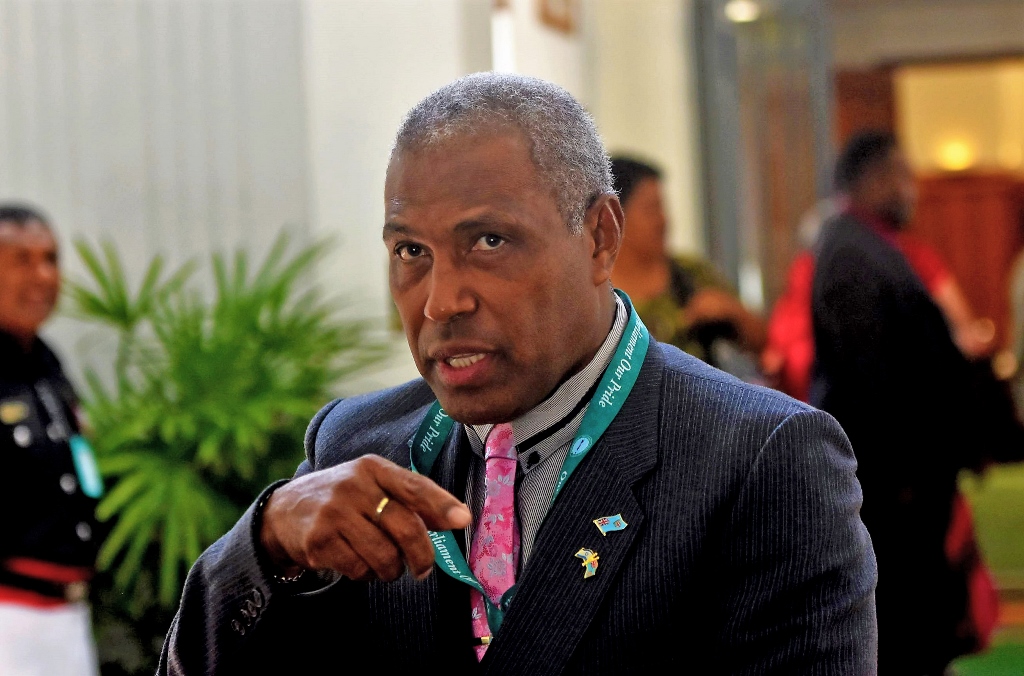As investigations continue around the country, and raids happen, acting Attorney-General Siromi Turaga says Government will go after the ‘big guys’ who have allowed the free flow of hard drugs in Fiji.
In a powerful statement yesterday, he said it was only right to severely punish those who cultivated the drugs instead of those who sold it.
And in the face of his remarks, Mr Turaga said there were discussions about the death penalty as a possible form of deterrent.
Now that is telling. It will no doubt raise a lot of eyebrows. The reality is that Fiji removed the death penalty years ago, a move widely seen as progressive and humane. Yet the fact that this most severe form of punishment is being discussed tells us something very important about the level of concern surrounding the drug trade which has grown to alarming levels.
When people are driven to possibly revisit such a divisive issue, it reflects just how deeply the drug menace has embedded itself into our society.
Deterrence is a central theme in these discussions. Harsh laws exist. Life imprisonment and fines of up to $1million are already on the books.
However, the drug trade continues to flourish. This raises difficult questions about enforcement, about loopholes, and about whether penalties, however tough, are being applied in a way that strikes fear into those who profit from destroying lives.
The recent High Court ruling in Lautoka, where life imprisonment was applied for the first time in a major case involving tonnes of methamphetamine, suggests a very tough hand on offenders. But sceptics will insist much more needs to be done to make Fiji a hostile environment for the trade. At the same time, we cannot overlook the visible results of the joint task force raids being carried out across the country. These operations are uncovering drugs, arresting suspects, and disrupting the supply chains that fuel the underground economy.
We can only hope they are part of a larger, coordinated push to weaken the networks that enable the trade to thrive. This is encouraging, because it shows government agencies are working together with purpose. Unity at this level is critical.
Unity must also extend beyond Government. The media has an important role to play, not only in reporting on arrests and court cases, but also in educating the public, amplifying the dangers of drugs, and advocating for real solutions.
The Fiji Times has consistently called for the establishment and expansion of rehabilitation centres for those addicted to drugs. For four years now we have carried that message, because deterrence and punishment alone are not enough. Unless we provide pathways for recovery, the cycle of addiction, crime, and incarceration will continue unchecked.
Rehabilitation, enforcement, education, and deterrence all go hand in hand. The fight against drugs cannot be reduced to punishment alone, nor can it be left to police raids and courtroom sentences.
There has to be a whole-of-society approach where families, communities, faith groups, schools, and the media are actively engaged in steering young people away from drugs, and where those who fall into addiction are supported back into meaningful lives.
We say this is a defining moment for us all. Let’s match tough talk with action.
Mr Turaga has made it clear. The focus must now turn to the ‘big guys’, the shadowy figures who bankroll, organise, and profit from this illegal trade. They have thrived for too long, feeding off the misery of others while hiding behind layers of protection. He wants them exposed and punished with the full force of the law.
We can turn the tide, united!



